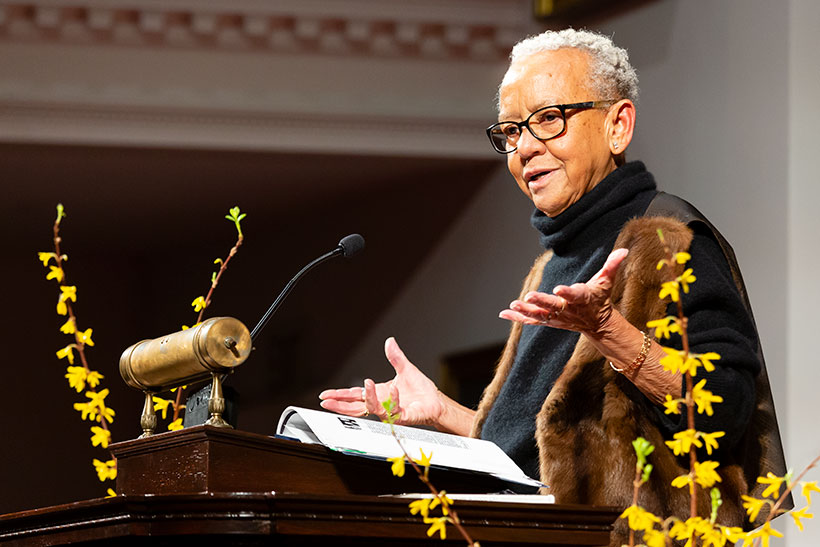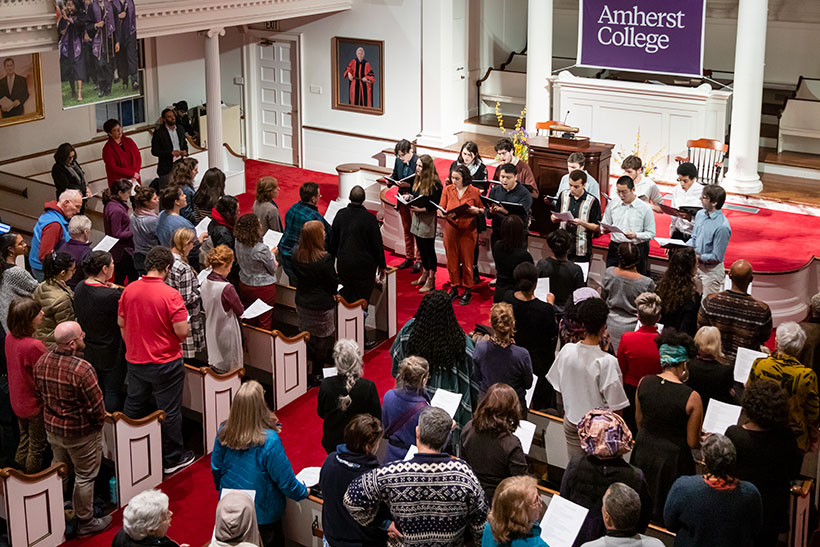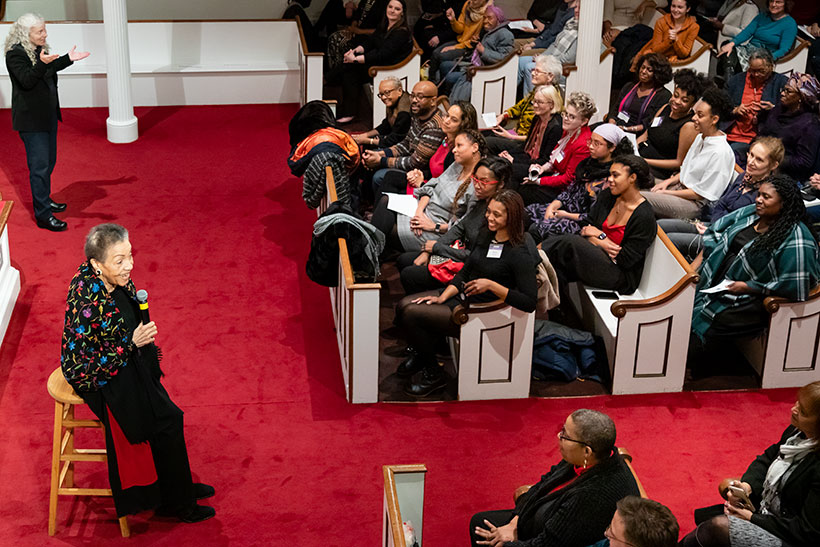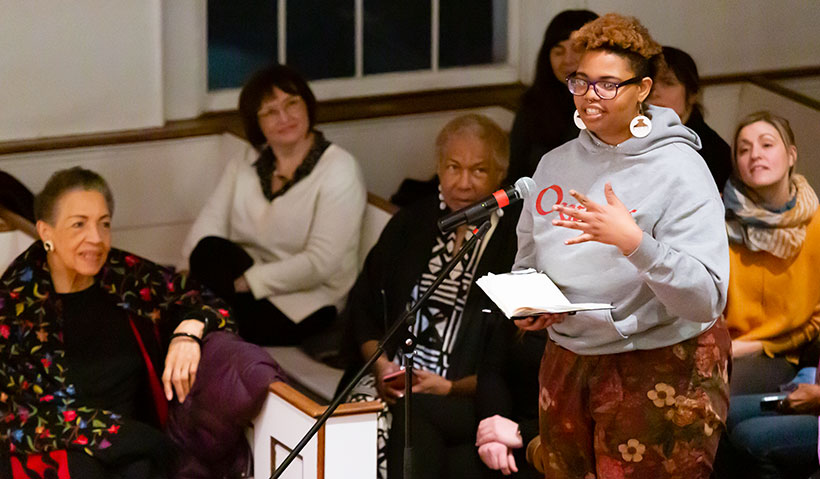
W
When Amherst College announced that Nikki Giovanni would be this year’s Martin Luther King Jr./Black History Month Symposium guest speaker, I overheard two distinct reactions. Camp 1: “Nikki who?” Camp 2: “Nikki Giovanni? Seriously? Yes!” Being squarely in Camp 2, I immediately marked my calendar and settled in for a healthy Google session to reintroduce myself to the prolific and incomparable Yolande Cornelia “Nikki” Giovanni Jr.
Mere minutes into my Googling session, it became clear that I was in danger of disappearing into a black hole filled with Giovanni’s articles, recordings, interviews and poems. But more about black holes in a bit.
In the early 1980s, if you stopped any student of creative writing or English lit on any campus in the United States, they would have been lugging a massive poetry anthology, and inside that anthology, you’d find poems by Nikki Giovanni. I was one of those students.

Fast forward to Feb. 13, 2020, and the Amherst Choral Society is singing “Lift Every Voice and Sing,” a poem written by James Weldon Johnson in 1900, set to music by his brother John Rosamond Johnson in 1905 and often referred to as the Black National Anthem.
Nikki Giovanni, by the way, is a self-confessed “space freak.” I thought I should mention that.
During a spirited introduction that transitioned from talking to singing and back again, Onawumi Jean Moss, emeritus dean of students, alluded to Giovanni’s fascination with outer space, saying, “When light goes into a black hole it has no need to come out again.”
Black holes are complex, so I’ll leave the bending of time and space to the experts, but the notion of being pulled into one is an apt metaphor for the far-ranging talk we are about to hear. Time—in this case the hour and half we have together in Johnson Chapel—pulls us forward. We are forever changed by what we are hearing and, simultaneously, we are unscathed.

Moss concludes her introduction by insisting that we stand up and use our outdoor voices to welcome “…doctor, mama, grandmama, auntie, and warrior, sister Nikki Giovanni.”
And we did. Loudly. And it felt good.
I thought I should mention that.
Grit. Glow. Grace.
When I first saw the posters for “Grit- Grace- & Glow: A Night With Nikki Giovanni,” I didn’t get it. I couldn’t parse those words together in a meaningful way. But as soon as she starts talking, Giovanni’s grit, grace and glow became immediately apparent. We all sit down and willingly follow her into unknown territory.
Giovanni is unapologetic, funny and profound. Her thoughts about the past (Fannie Lou Hamer, Rosa Parks), the present (President Trump, Black Lives Matter) and the future (her love of outer space) are well-documented. Listening to Giovanni move gracefully between personal stories (she’s had lung and breast cancer, for example) to her concern that young people don’t accept love and help into their lives, to her hopes for a future when more black women will travel to outer space– allow me to understand the title of her talk.
And she is glowing. From the inside. Confident and at peace with herself. I thought I should mention that. Because that’s what Giovanni says. After every funny personal story, after every comment about contemporary life, after ever wistful picture she evokes of leaving planet Earth, that’s what Giovanni says: “I thought I should mention that.” It becomes a refrain, a mantra, a pause that allows the audience to settle and reflect.
Intermingled with anecdotes, provocative statements and laughter, Giovanni also reads some poems. For all the titles attached to her—writer, poet, activist, commentator, educator—it is Giovanni the poet that shines most brightly tonight. She reads “In the Spirit of Martin,” a far-ranging historical poem that feels like a eulogy, and “Stardate 18628.190,” which begins (as multiple Giovanni poems do) with the line “This is not a poem.” Both poems reflect the voice of a woman who cares deeply about every topic under the sun. She concludes with “Quilts,” a tender poem about being needed, cared for and remembered.

As the evening concludes, Giovanni answers questions from the audience. We learn about a new poetry collection coming out in September and a CD collaboration of spirituals. We learn that her favorite music is jazz, and of her great desire to collaborate with illustrator Diane Dillon on a retelling of the tortoise and the hare fable.
After a final, rowdy round of applause, the audience drifts out slowly, continuing the conversations Giovanni has started. We’ve shared an evening of honesty, indignation and inspiration. For this audience member, the quiet, chilly walk back to my car, beneath a star-pocked sky, is the perfect, graceful ending to a night with Nikki Giovanni.